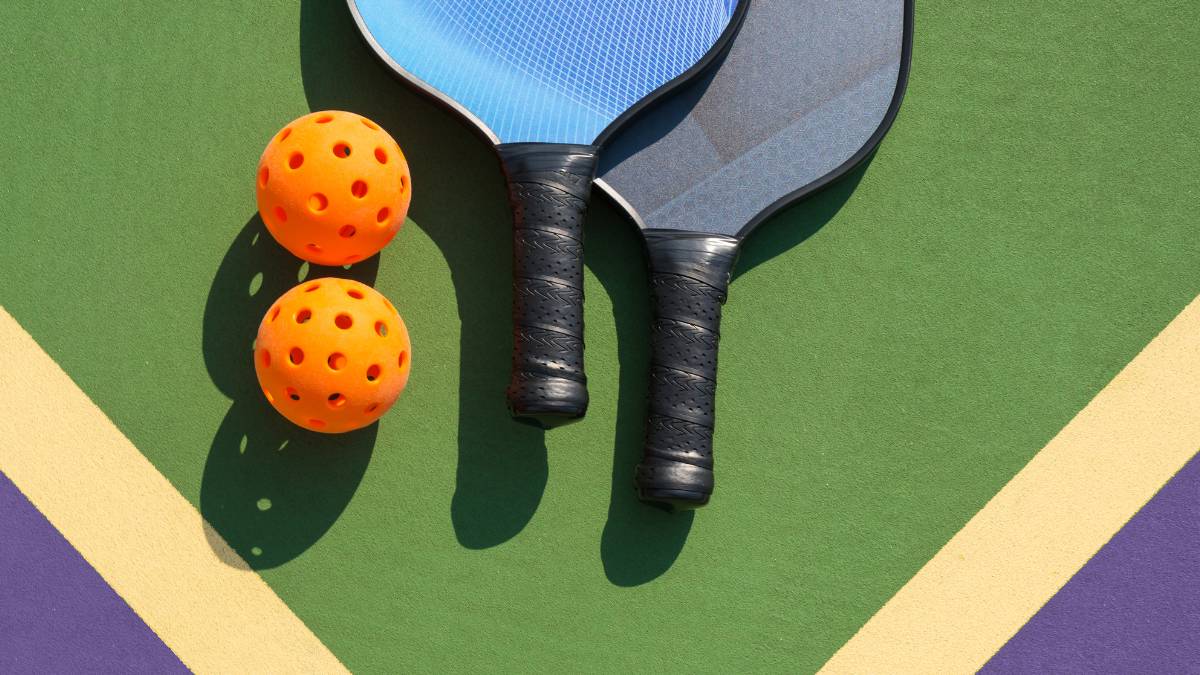As a pickleball enthusiast, I’m always looking for the best court surface for playing pickleball. Two of the most popular court surfaces are concrete and asphalt. So which one is better for a pickleball court? In this article, I’ll compare the two surfaces and provide you with an answer.
Comparing the Advantages and Disadvantages of Concrete and Asphalt for Pickleball Courts
When it comes to constructing a pickleball court, there are two primary options for the surface material: concrete and asphalt. Each option has its own advantages and disadvantages, and it’s important to consider the factors of cost, durability, and playability when making your decision.
Cost
Concrete is generally the more expensive option, but it also offers a longer lifespan and can be customized with a variety of colors and textures. Asphalt, on the other hand, is cheaper to install and maintain, but it also has a shorter lifespan and can be prone to cracking.
Durability
Concrete is considered to be the more durable surface material, as it is less likely to crack or chip than asphalt. It also requires less maintenance, as it does not need to be resurfaced as often. Asphalt, however, is more resistant to wear and tear and can be easily resurfaced if needed.
Playability
Concrete is generally considered to be the better surface for pickleball, as it offers a more consistent bounce and is better at absorbing shock. Asphalt, on the other hand, is less consistent and can be more slippery.
Overall, both concrete and asphalt have their advantages and disadvantages for pickleball courts. It’s important to consider the factors of cost, durability, and playability when making your decision. Ultimately, the best option will depend on your budget and preferences.
Why Choose a Concrete Court
Here are some of the key advantages of using a concrete surface for a pickleball court:
Durability: Concrete surfaces are incredibly durable and can withstand heavy use over time. It lasts longer than asphalt. This makes them an ideal choice for pickleball courts that see a lot of activity. Concrete surfaces are also resistant to weathering and cracking, which helps to extend their lifespan and reduce maintenance costs.
Low maintenance: Concrete surfaces require minimal maintenance. Regular sweeping and cleaning can help to keep the court free of debris, while periodic sealing can help to protect the surface from weathering and staining. Any repairs that are needed can be easily made by filling in any cracks or holes with concrete patching material.
Cost-effective: While the initial installation cost may be higher than asphalt, the long-term durability and low maintenance requirements of concrete can help to reduce costs over time.
Versatility: Concrete surfaces can be painted in a range of colors to match the preferences of players or the surrounding environment.
Why choose an Asphalt Court
Here are some of the key advantages of an asphalt surface for a pickleball court:
Fast installation: One of the primary advantages of using an asphalt surface for a pickleball court is that it can be installed quickly. Asphalt can be laid in a matter of days, allowing for a fast turnaround time for court construction. This is particularly advantageous for those who want to have their pickleball court ready for use as soon as possible.
Less costly: Asphalt is less expensive than other court materials such as concrete or clay, making it a more budget-friendly option.
Easily maintained: Asphalt surfaces are relatively easy to maintain, which is important for a pickleball court that sees frequent use. Regular sweeping and cleaning can help to keep the court free of debris, while sealing every couple of years can help to protect the surface from weathering and cracking. Any repairs that are needed can be easily made by filling in any cracks or holes with asphalt patching material.
Weather-resistant: Asphalt can withstand a range of weather conditions without becoming damaged or deteriorating.
Conclusion
Overall, when it comes to paving a pickleball court, concrete or asphalt can both be a viable option, although concrete may be the more popular choice. It is important to consider the cost, durability, maintenance, and overall look when deciding which material to use. Both materials can provide a court that is safe and enjoyable to play on, as long as the court is installed properly.
Ultimately, it is up to the individual to decide which material is better for their pickleball court.
FAQs
Q1: What are the benefits of using concrete for a pickleball court?
A1: Concrete offers a durable and long-lasting surface for a pickleball court. It is also easy to maintain, and does not require frequent resurfacing. In addition, concrete provides a consistent bounce for the ball, allowing for predictable and enjoyable gameplay.
Q2: What are the benefits of using asphalt for a pickleball court?
A2: Asphalt is an affordable and easy to install surface for a pickleball court. It is also relatively low-maintenance and can withstand heavy foot traffic. Additionally, asphalt provides better traction than concrete, which can help prevent slips and falls.
Q3: Which surface is better for a pickleball court: concrete or asphalt?
A3: Both concrete and asphalt offer benefits for a pickleball court, and the best option depends on individual preferences and specific use cases. Generally, concrete provides a more consistent bounce for the ball and is easier to maintain, while asphalt is more affordable and provides better traction.
